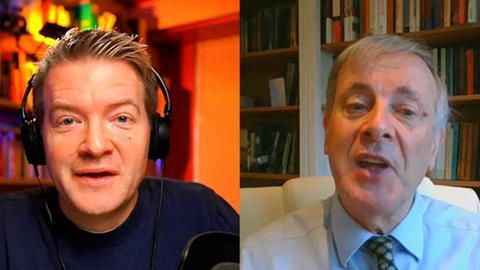Alister McGrath and Justin Brierley continue their conversation on the ‘meaning crisis’ in the West and how Lewis’ wisdom applies to today’s world and the modern mental health crisis.
+ Subscribe to The CS Lewis podcast: https://pod.link/1560959545
+ For more shows, free ebook and newsletter visit our new website
+ For our Premier Unbelievable? Live events
+ Support the podcast from the USA
+ Support the podcast from UK and rest of the world























